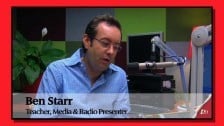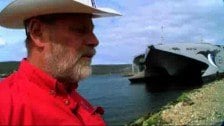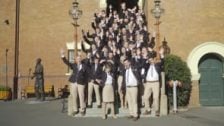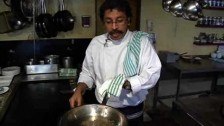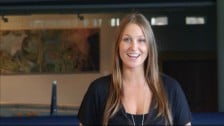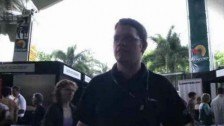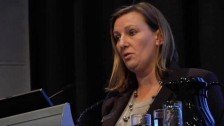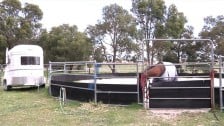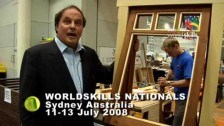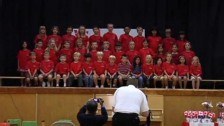Sustain Ability at Worldskills
We meet Apprentice sparkie Samuel Baker from Cobar, who is contributing to Sustainability Place DSF. With other TAFE students, we see Samuel building a wind generator - and we see just how green WorldSkills can be!
Sustainability Place DSF:
In collaboration with WordSkills Australia and 'Your Abode' (private company) is showcasing aspects of an environmentally responsible home during the WorldSkills competition. Sustainability Place will consist of a cutaway of a house into a backyard that has been designed by Darryn Parkinson, director of 'Your Abode'.
Darryn says this project is critical because “its important that wholesale change in peoples attitudes surrounding sustainability begins with young people”.
“The drive comes from young people who are questioning older people about best practice… Businesses that aren’t sustainable will fall behind because they won't be able to get people to work for them.” The design will demonstrate ideas for energy and water efficiency, a passive solar house design and the use of sustainable materials.
This will include features such as low water gardens, low energy light fittings, energy efficient windows and glazing systems and the use of insulation. The materials that have been sourced for the construction of Sustainability Place demonstrate environmental conscientiousness and the ease of building with such materials for the general public.
The cutaway will be constructed by a variety of past WorldSkills competitors, judges and project managers who have generously volunteered their time and efforts.
During the course of the competition young apprentices will be explaining aspects of Sustainability Place to the public. They have undertaken research on environmentally sound practice and will gain course credit for their work as a result.
About Samuel Baker:
Samuel Baker is a very laid back, grass-roots young bloke, even a bit reserved but comes alive when he talks about all the electrical techie stuff. He was born in Dubbo, spent some time in NZ and is now in Cobar (300 km from Dubbo in the far west of NSW) working as an apprentice electrician above ground at CSA Copper Mine. He actually reckons he’s a New Zealander and goes for QLD in the State of Origin!
He is really enjoying the second year of his four year apprenticeship, at the end he will be a Level 3 electrician. Samuel likes project work and fixing things that break down like tripping motors. He gets a real kick out of solving an electrical problem.
Eventually Samuel would like to study electrical engineering at Uni. His dad also works at CSA underground as a ‘Jumbo Operator’ on the drilling equipment. Samuel’s dad encouraged him to get his trade because electrical engineers who know the basics and know what they’re talking about are much better and get more respect throughout the industry.
This advice seems to have had a big impact on Samuel because he often talks about improving, being the best at what he does and going on to work in engineering robotics. Samuel’s first encounter with electrical circuitry came when he installed a stereo system in his car so he could pump up the volume and listen to the rock band ‘Creed’.
Samuel drives every three weeks to attend TAFE at Dubbo but it’s not too bad because uses the chance to drive a further two hours to Bathurst to visit his girlfriend who is studying PE there. Samuel likes the whole idea of being a ‘sparkie’ and “figuring out what is going on” and fixing it.
Coming to WorldSkills to help construct Sustainability House and performing the role of being a representative who gives information about the display house to the general public will earn Samuel marks towards his TAFE assessment- ‘Sustainability Module’.
Part of this module, he already submitted some research to ‘The Apprentice Voice - WorldSkills Forum’ on renewable energy and energy saving measures in commercial spheres and industry, focussing on lighting and heating. He became most animated when explaining the ‘Power Factor’, a correction of voltage and current phase, when they are not in-line it can waste energy.
Some other factors for students to consider while working on Sustainability Place are energy-efficient lights, storage batteries and alternate energies like solar powered cells and wind generation.
